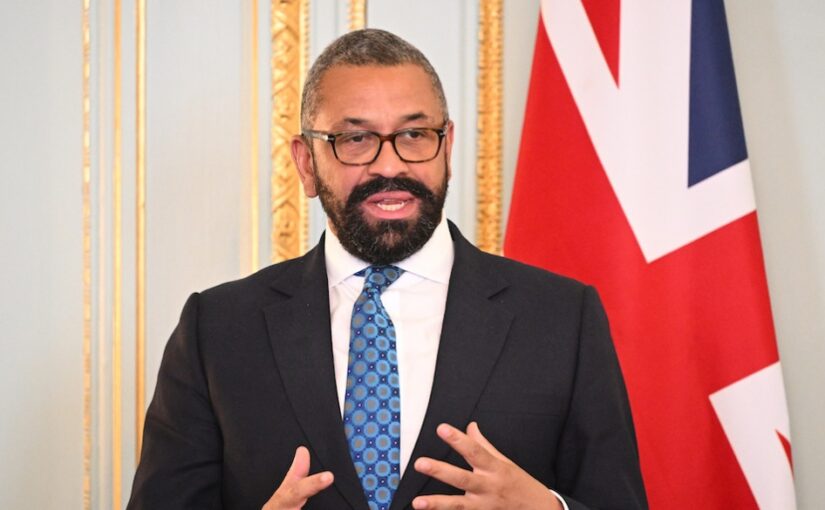The following Morning Star editorial discusses British foreign secretary James Cleverly’s recent visit to Beijing.
Before setting off, Cleverly observed that “no significant global problem – from climate change to pandemic prevention, from economic instability to nuclear proliferation – can be solved without China.” This is certainly true. Furthermore Britain would derive clear economic benefits from improved Britain-China relations.
Unfortunately, as the editorial points out, Cleverly’s relatively balanced position stands in stark contrast to that found elsewhere in parliament, “where the foreign select committee not only urges Aukus expansion but calls for Britain to join another anti-China military bloc, the Quad, a prescription for miring us still deeper in the preparations for a Pacific war that a US general has predicted for the year after next.”
What’s more, the basic political dynamics underlying the deterioration in relations have not meaningfully changed. The US is leading a New Cold War that includes military encirclement (via AUKUS, war games, freedom of navigation assertions and so on), attempting to stoke conflict across the Taiwan Strait, sanctions, tariffs, and a vicious propaganda war. Britain has involved itself in all of this. Prioritising our status as a loyal junior partner to US imperialism has become a consensus position in British politics.
The editorial concludes that a powerful mass peace movement is a necessary force to counter the Cold Warriors in Westminster.
The Foreign Secretary’s visit to Beijing is a welcome attempt to keep communications open with an economic, scientific and technological giant.
James Cleverly is spot on when he says global problems cannot be addressed without China, whether we are talking about climate change, co-operation on pandemics or — the elephant in the room given the feverish warmongering on Tory back benches — avoiding World War III.
The government’s attitude contrasts favourably to that of critics like ex-work and pensions secretary Iain Duncan Smith. For Duncan Smith, for whom “anything to do with China is a security threat,” simply holding talks with Chinese leaders is “appeasement.”
Labour’s David Lammy does not go quite so far, though he calls on Cleverly to secure “tangible diplomatic wins” such as the removal of sanctions on British parliamentarians.
He does not mention that China’s sanctions on five British MPs, dating back to 2021, were a retaliatory measure following Britain’s sanctioning of four Chinese officials.
The exchanges are instructive, since they illustrate the arrogance with which Western powers continue to deal with developing countries. MPs insist that our foreign secretary should wring concessions from Beijing — yet any talk of mutual concessions would be “appeasement.”
Coming in the month six more countries, including traditional US allies Saudi Arabia and the United Arab Emirates, were announced as joining the Brics bloc of global South nations, this arrogance is dangerous. We are no longer in a world where the West’s wish is law.
The vast majority of countries welcome this. Cleverly suggests it would be a mistake for Britain to isolate China, but the reality is it cannot do so.
Talk about China having grown more “isolated” under Xi Jinping rests solely on deteriorating relations with the US and its allies.
They do not reflect a global reality where China has in recent years overtaken the US as the country with the most diplomatic missions abroad, where it is the main trading partner of an absolute majority of nations, or where its Belt & Road Initiative is the biggest lender of development finance on the planet.
Other government lines are equally disingenuous. China is urged to be more “responsible” over conflicts like that in Ukraine.
But China is not supplying arms to a side in that war, as Britain is. China has proposed a 12-point plan that could form the basis of peace negotiations. Britain has not only done nothing to further peace in Ukraine, but according to allies including Israel and Turkey it actively intervened to derail peace talks in the early months of the conflict.
That spoiler record is not confined to Ukraine: according to Houthi leaders in Yemen Britain and the US are “leaving no stone unturned” to stop peace in that country too, after real progress including prisoner exchanges achieved through Chinese-brokered talks with the warring sides’ sponsors, Saudi Arabia and Iran.
Cleverly’s diplomatic mission is hedged with caveats. As has been clear since we ripped up a national 5G development contract with Huawei on US orders, our China policy is not set in Westminster but in Washington: and together with the US we are militarising the Pacific through aggressive military pacts like Aukus.
It may not achieve much, but it is better than the mood music on the green benches, where the foreign select committee not only urges Aukus expansion but calls for Britain to join another anti-China military bloc, the Quad, a prescription for miring us still deeper in the preparations for a Pacific war that a US general has predicted for the year after next.
The Beijing trip is a hint of sanity in a context where parliamentary opinion is increasingly unhinged. World War III is a real possibility, and there can be no higher priority than preventing it. The left must rebuild a peace movement capable of forcing that reality on our foolhardy political elite.

